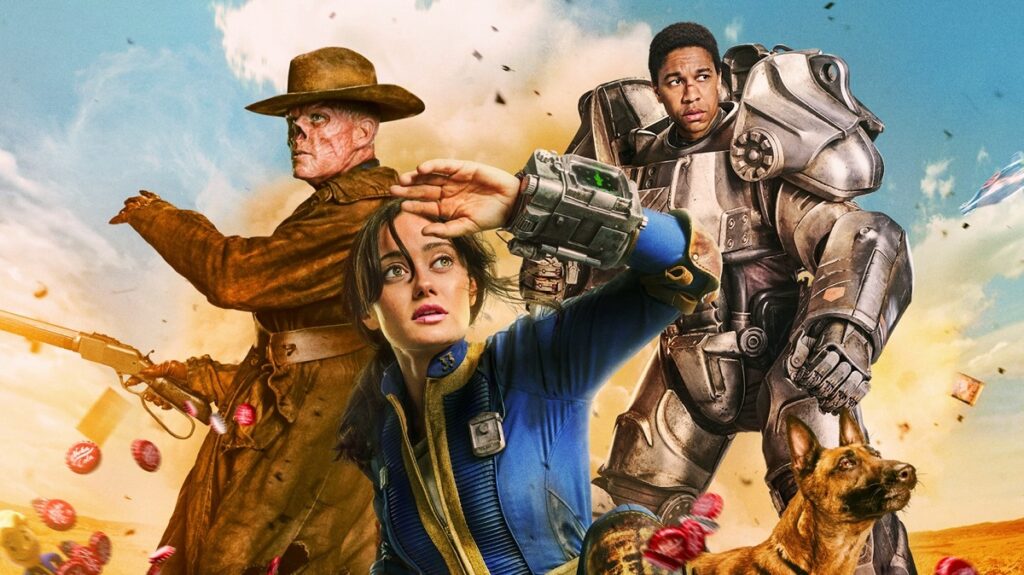
Image via Prime Video
Fallout might have Bethesda’s seal of approval through its direct involvement, but there is something fundamentally wrong with this series from Prime Video. It has nothing to do with Lucy, Ella Purnell’s plucky protagonist, or The Ghoul who is brought to life by an exceptional Walton Goggins concealed beneath skilfully applied prosthetics. Fallout falters because it must burst the bubble of this open world concept to function dramatically.
There is no denying the ambition of Geneva Robertson-Dworet (Captain Marvel) or Graham Wagner (Silicon Valley), who have enough experience between them to deliver something with scope. Nor is the involvement of Jonathan Nolan (Westworld) anything other than exciting considering his track record at creating long running science fiction dramas. The problems start when a series of coincidental events hamstring a truly inventive opening, when Lucy’s father Hank (Kyle MacLachlan) is carried outside by surface dwellers who have managed to infiltrate their safe haven.
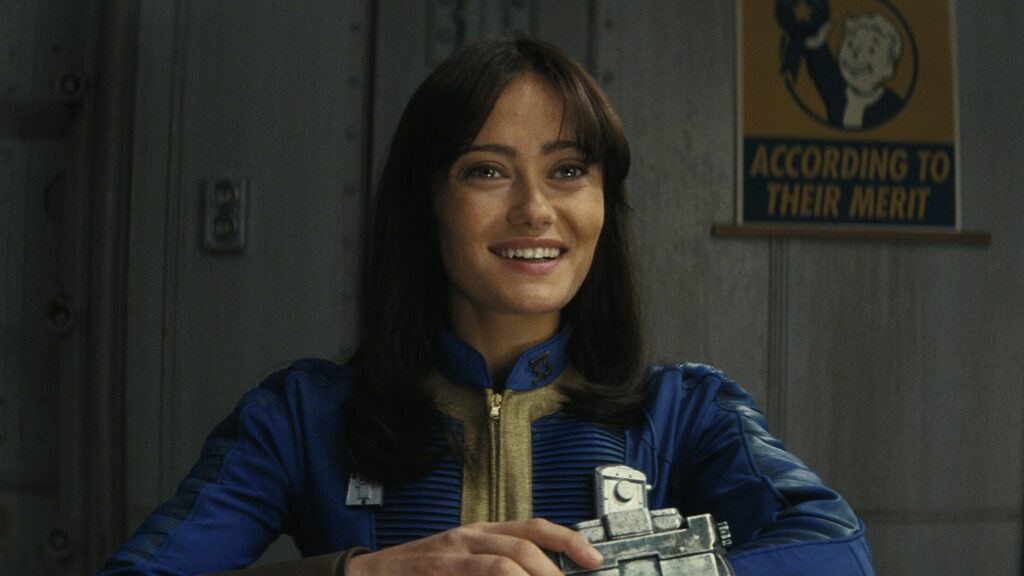
Image via Prime Video
What this does is create an on-going obstacle and excuse for the writers to get Lucy above ground quickly, so that audiences get to explore this world. Once out in the open, Fallout taps into decades of iconography that long term players will instantly identify with. There is clearly a lot of love that has been poured into this fully realised world, populated by various factions all fighting for survival. Shanty towns boast endless amounts of detail, mechanised suits belonging to the Brotherhood of Steel are painstakingly brought to life, while the production design has already won awards before the end of episode one.
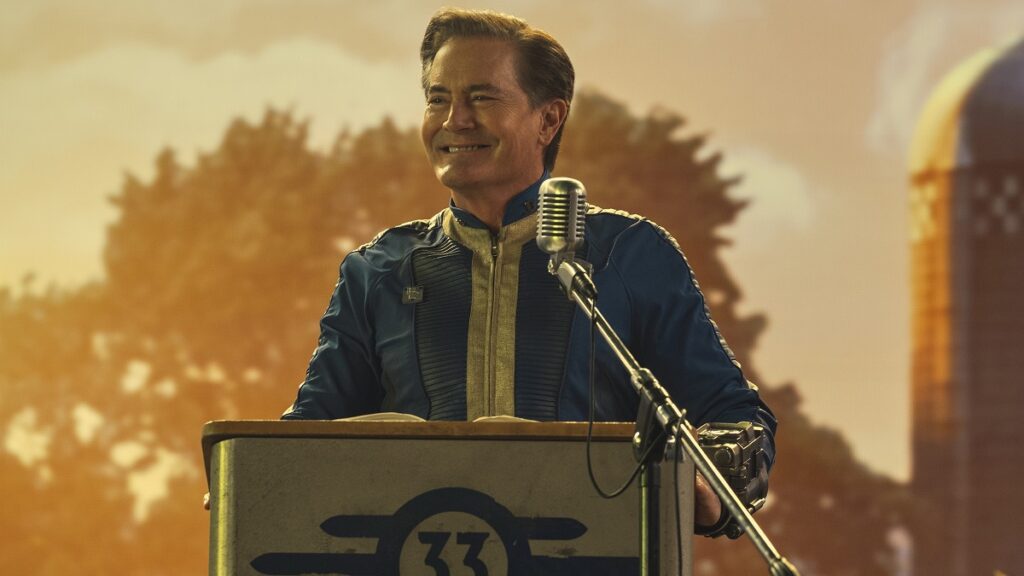
Image via Prime Video
Between the infinite amounts of windswept desert and serious Mad Max vibes, comes a post-apocalyptic Western crossed with Terry Gilliam levels of visual invention. Flashbacks strategically reveal key moments for these characters that have shaped them, both before and after nuclear war changed the game for everyone. Maximus (Aaron Moten) is a bullied recruit in the Brotherhood who manages to make it out of bootcamp for convoluted reasons. That he meets up with Lucy feels inevitable as do a lot of the early interactions with The Ghoul, when he first encounters them both.
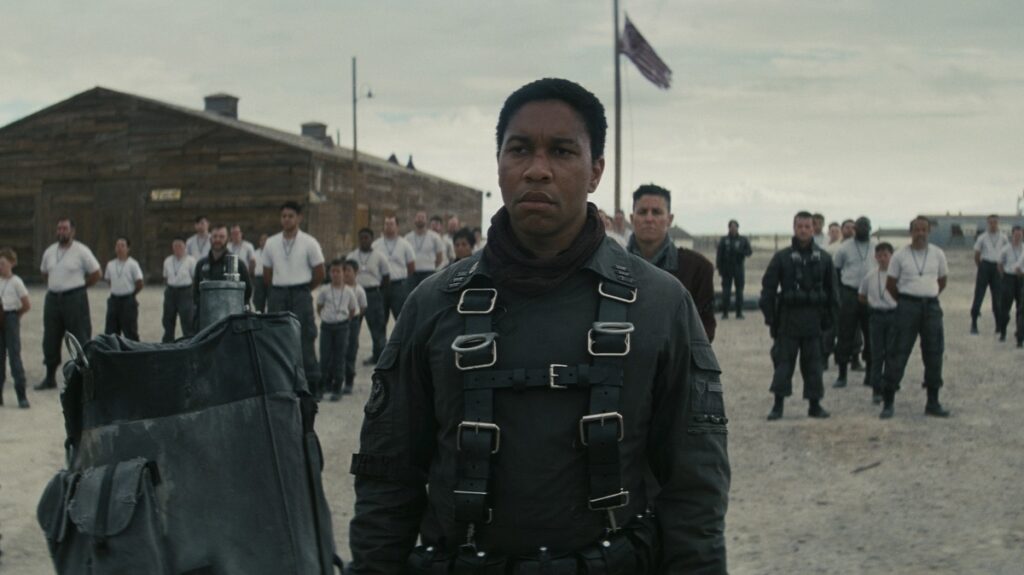
Image via Prime Video
It soon becomes clear that Fallout is a basic mission based story broken up by some essential character moments. Any radioactive monsters that cross their path are quickly dispatched and everyone simply moves on to the next thing. This is why the show comes unstuck because it quickly becomes trapped by convention. By enforcing rules on an adaptation that remained successfully because it never had any to begin with was always going to end in tears.
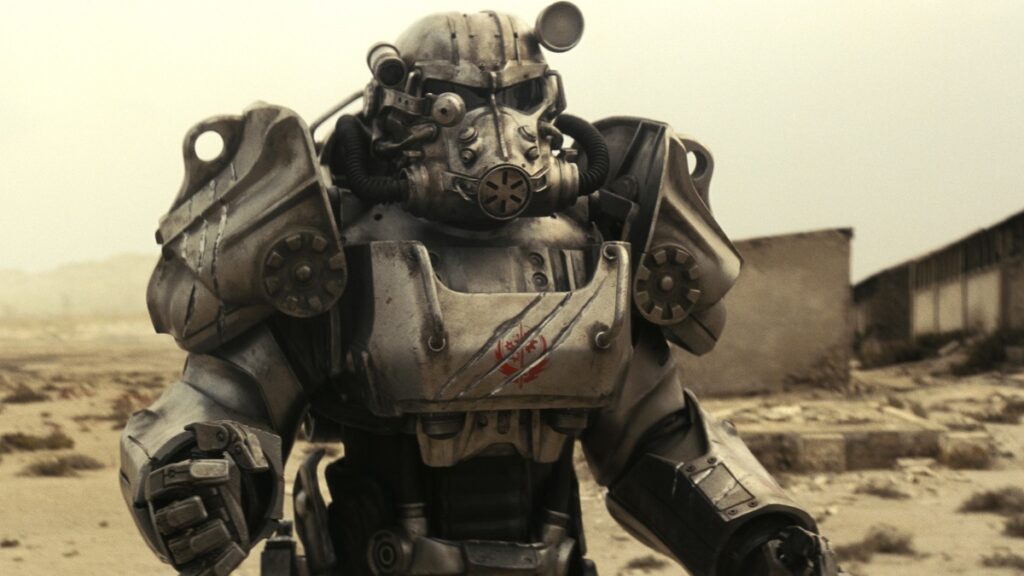
Image via Prime Video
There also needed to be some grounded emotional stakes that audiences could get behind. With some rare exceptions to the rule, there are very few characters to care about in this series. Whether this is because dramatic moments feel signposted or the writers behind Fallout had too many in-games sources to draw from is up for debate. Unfortunately, what does become apparent after 2 episodes is just how average it all feels.
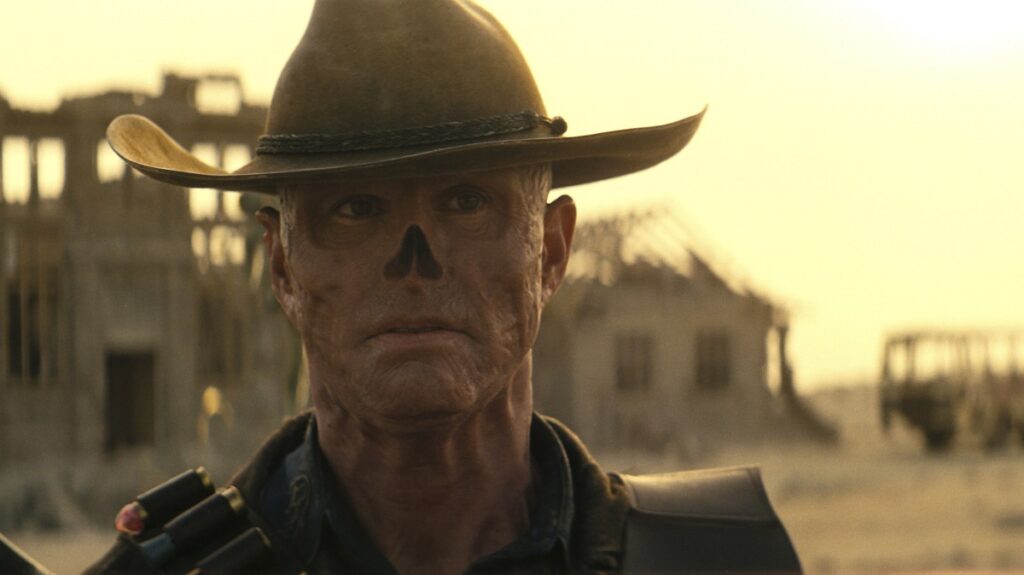
Image via Prime Video
Everything about this collaboration including the people involved promised great things. There is no denying the production design or passion behind this richly realised world. The problem is that Fallout lacks dramatic substance and somehow swings and misses. Stand outs which are worth waiting for include Walton Goggins, who really embraces his Western roots and gives this show a much needed adrenaline shot. Matt Berry also makes an impression despite never appearing on screen, while Ella Purnell (Yellow Jackets) and Aaron Moten (Emancipation) do the best they can. However, the last thing anyone expected was something ordinary, but strangely that is the feeling which lingers for the longest time.
Fallout premieres on Prime Video from April 11th.



